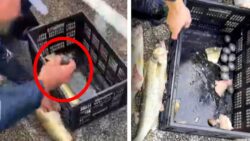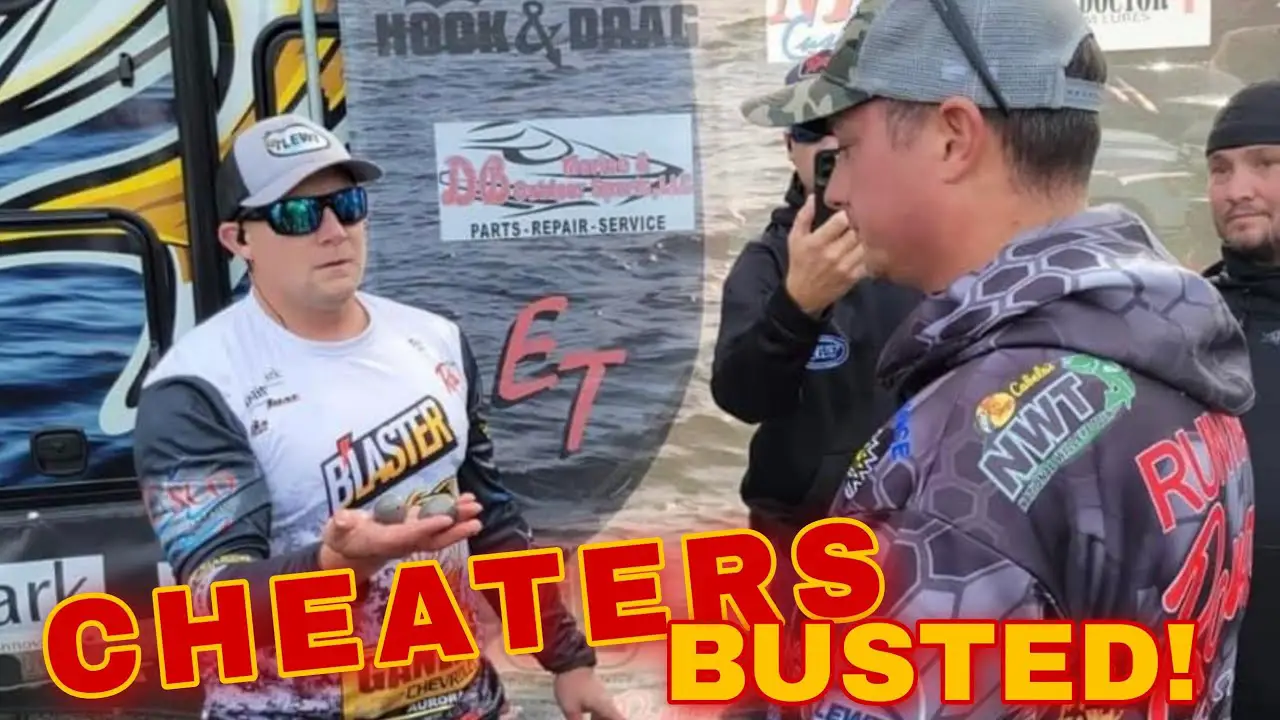Fishing used to be about having fun. We all tried to catch a biggun, or a stringer full. Today, tournaments offer huge cash payouts, prizes, and rewards for the biggest, most poundage, or most fish caught. A new breed of competitive fishermen has evolved.
When money and rewards are involved, fishing becomes business. Commercial fishermen look at fish as a money generating resource. Tournament anglers catch fish to win prizes and have a pay day. Competition spawns’ greed. Anglers will cheat to win if they can’t do it honestly.
Ocean fishing tournaments are the perfect example. The Marlin Tournament in Ocean City Maryland or other saltwater tournaments require that big fish are caught. The biggest fish means the biggest pay day. There are rules, judges, and ethics applied to these tournaments, but cheaters are also creative. If the cheaters applied their energy to honest fishing, you would think that they may not need to cheat.
For some people, cheating is part of the sport. Catching fish honestly is not as rewarding to them as breaking the rules or laws. They get a thrill from the crime.
Recent tournaments have highlighted how these cheaters cheat. The key to winning a tournament often comes down to weight. One walleye tournament had 2, what looked like identical walleyes, at the measuring station. One was 2 ½ pounds heavier than the other. When the honest angler questioned the weight, the judge cut the heavier fish open. Inside were lead sinkers, wrapped in additional walleye filets. You could not feel the weights by touch since the wrapped filets cushioned them. The same cheaters had won the tournament the year before. No loss of license, fine, or exclusion from future tournaments were issued. These “Cheaters” can continue to cheat.
Inserting weights that have been hammered paper thin, using heavy materials that cannot be detected by a metal detector, and other creative cheating methods are common. Cheaters often target tournaments that lack scrutiny and technology to examine the fish. Bribes are also a strategy used by cheaters. Large fish have been caught prior to the tournament and left in submerged traps to be retrieved later. It’s not about being honest, it’s about winning.
When an angler wins, it often means money, prizes, and prestige. Boats, tackle, and other valuable prizes are offered. On the side, there are often big money bets made. These Calcutta’s can mean millions of additional dollars. The Ocean City Marlin Tournament winners receive the money prize of maybe 1 million dollars but can win the Calcutta that adds to several million dollars more. If caught cheating, they get to come back the next year with a new plan of cheating.
The Maryland rainbow trout state record is a good example of cheating. A commercial angler fished in the Great Lakes but lived in Arbutus, Maryland. He entered a huge rainbow into the State record books. He claimed to have caught the monster fish on a skein bait in the Savage River Reservoir, 3 hours away from his home and the measuring station. Rarely do Maryland anglers use steelhead skein baits.
His story was that he was returning from a fishing season in the Great Lakes and stopped by the Savage River Reservoir for a couple hours of fishing. He was alone with no witnesses to the catch. He then drove home, a 3-hour drive, to measure and enter the fish. No DNA or research was done by the State DNR. They simply accepted the Cheaters’ entry. Sounds a bit fishy! My guess is that the giant trout was caught in the Great Lakes in his commercial net.
Bass tournaments often require that only live fish are entered. This eliminates bass caught elsewhere and placed on ice until the day of the tournament. With live wells, fish are also kept alive until measured. A DNA test will confirm where the fish came from. Judges and witnesses are also required to see and certify the catches. New rules help keep fishermen honest but…
Until Cheaters are punished, the cheating will continue. Banning from the sport, barred from national fishing licenses, seizing boats and gear used in the crime. Fines, and being placed on a national registry for cheaters would help. This cheating can also be considered attempted. Grand Theft.
Cheaters will cheat until they are banned from tournaments. These cheaters are no different than poachers, criminals, and thieves. They are not sportsmen. Their crimes ruin honest sport and competition for others.
Maybe we need to just get back to fishing for fun!
Montana Grant



